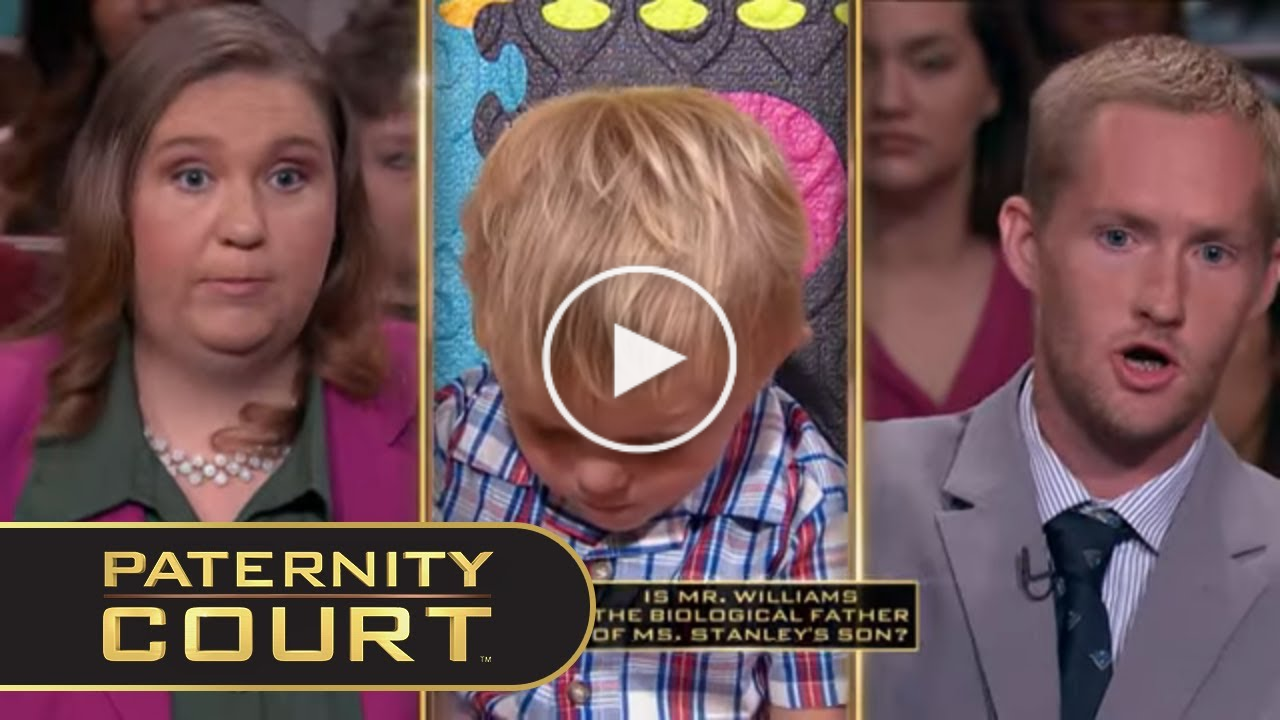The court is called to order, and the case of Stanley v. Williams takes center stage, entangling Ms. Stanley and Mr. Williams in a paternity dispute concerning three-year-old Ryan Alexander. As both parties present their conflicting perspectives on Ryan Alexander’s fatherhood, the court prepares to delve into the emotional complexities and rely on the crucial role of DNA testing to unveil the truth.
With tension thick in the air, Ms. Stanley admits to being intimate with both Mr. Williams and another man during the time of conception. However, she firmly believes that the other man is more likely the biological father due to a more consistent sexual relationship. On the other hand, Mr. Williams vehemently denies Ms. Stanley’s claims and accuses her of being a “straight, low-down liar”. The court is faced with a challenging task of sifting through emotions and discerning the facts.
The court emphasizes that DNA testing is imperative to establish paternity accurately. The conflicting testimonies of Mr. Williams and Ms. Stanley underscore the necessity for unbiased scientific evidence. DNA testing has become a powerful tool in resolving paternity disputes, providing a clear and objective picture of a child’s biological relationship to their father.
Amidst the tumultuous dispute, a new figure emerges in the form of Mr. Jennings, Ms. Stanley’s current boyfriend. He bravely steps forward, asserting, “I am Ryan Alexander’s father, regardless of the DNA results”. For the past two years, Mr. Jennings has been a dedicated and caring presence in Ryan Alexander’s life, providing emotional and financial support. His unwavering commitment exemplifies the vital role of nurturing and fatherhood, transcending mere biological ties.
The case lays bare the emotional turmoil experienced by both Mr. Williams and Ms. Stanley. Mr. Williams reveals the pain of feeling excluded from Ryan Alexander’s life, while Ms. Stanley remains steadfast in her belief of the other man’s paternity. The court recognizes the potential legal rights of a biological father to be involved in the child’s life. However, it also acknowledges the significant impact a devoted father figure like Mr. Jennings can have on a child’s well-being.
The courtroom holds its breath as the long-awaited DNA test results are revealed. “It is determined that Mr. Williams is not the biological father,” announces the judge. Despite the unexpected outcome, Mr. Williams maintains composure, expressing his determination to move forward positively. The DNA results, while crucial in establishing biological ties, do not diminish the importance of the relationships formed between Mr. Jennings and Ryan Alexander.
As the case draws to a close, the article emphasizes the importance of providing information about the biological father to Ryan Alexander, allowing for a potential relationship. The court recognizes that Mr. Jennings’s commitment to the child’s well-being is a testament to the transformative power of a positive fatherly presence. While paternity disputes can be emotionally challenging, the pursuit of truth and the well-being of the child remain paramount in seeking resolution.
The case of Stanley v. Williams exemplifies the complexities surrounding paternity disputes and the critical role of DNA testing in unraveling the truth. Amidst heightened emotions, the court’s dedication to objective evidence showcases the importance of relying on scientific facts to establish paternity.
Moreover, the article highlights the significance of nurturing and devoted father figures, regardless of biological connections. Mr. Jennings’s unwavering commitment to Ryan Alexander serves as a testament to the profound impact of a supportive fatherly figure in a child’s life.
As paternity disputes continue to arise, the article underscores the value of DNA testing in providing clarity and closure for all parties involved. Despite emotional challenges, the pursuit of truth and the well-being of the child remain paramount in seeking resolution. The case of Stanley v. Williams teaches us that even amid contentious situations, the pursuit of truth and the best interests of the child should guide us toward a path of understanding and support.



